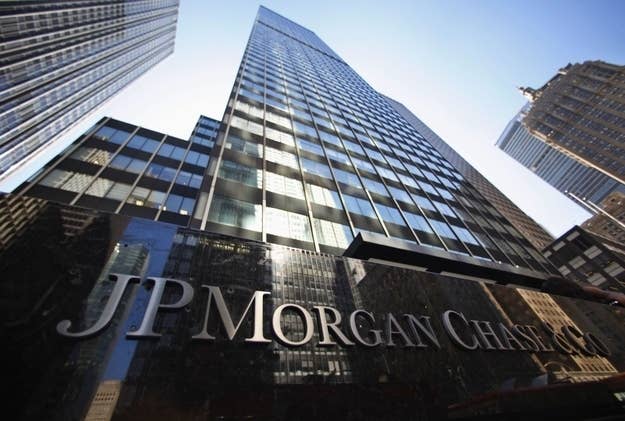
JPMorgan Chase today agreed to pay $100 million to settle charges with the Commodity Futures Trading Commission that it had "acted recklessly" regarding its actions surrounding what has come to be known as the "London Whale" trade.
The bank also admitted to facts the CFTC laid out in its enforcement order, essentially acknowledging wrongdoing and conceding that it "disregarded the fundamental precept on which market participants rely, that prices are established based on legitimate forces of supply and demand" in its giant 2012 derivatives trade that would ultimately cost the bank over $6 billion.
The enforcement order says that in early 2012, as losses on the London Whale trade were mounting, JPMorgan traders in London sold $7 billion — what the CFTC describes as a "staggering amount" — of protection on a derivatives index in order to "defend the position," to protect their short bet.
The CFTC says that on Feb. 29, the day of the sales, JPMorgan was responsible for 90% of the entire volume of that index and 11 times of the typical volume of trades for that month. The traders sold $4.6 billion of protection on the derivatives index in just three hours according to the CFTC's order. Even though this behavior hardly saved the trades, the sheer amount of trading that day was considered "reckless" by the CFTC.
The order only covers one day worth of trading, Feb. 29, the day before outside examiners from JPMorgan looked at traders' marks to see if their traders were profitable.
The overall trade, of course, was a disaster: Traders piled onto the other side of the bet and their huge position was exposed in the press that April, and losses mounted so quickly that JPMorgan pulled out of the trade and eventually fired several traders and executives thanks to more than $6 billion in losses.
Thanks to provisions of Dodd-Frank, the 2010 financial regulatory bill, the CFTC can now go after traders for manipulating prices if it can show traders were being "reckless" in conduct that could result in prices being manipulated, like executing massive trades at the end of the month.
"As this case demonstrates, the Commission is now better armed than ever to protect the market from traders, like those here, who try to 'defend' their position by dumping a gargantuan, record-setting, volume of swaps virtually all at once, recklessly ignoring the obvious dangers to legitimate pricing forces," David Meister, the CFTC's enforcement director, said in a statement.
One reason banks have been reluctant to admit wrongdoing in settlements with their regulators is the fear that the settlements could be used by private litigants and investors for lawsuits. While JPMorgan did admit that its traders were reckless, as well as to the facts the CFTC asserted, the enforcement order said that the bank "does not consent to the use of ... the findings or conclusions in this Order ... by any other party in any other proceeding."
Scott O'Malia, one of the CFTC's four commissioners, dissented from the Commission's decision, saying that the CFTC had "failed to determine whether JPMorgan intentionally or recklessly manipulated the price" of the derivatives index. Just showing that the traders had acted recklessly without necessarily intending to illegally manipulate prices, O'Malia said, "undermines the Commission's integrity and its enforcement powers in favor of taking shortcut's to achieve high-profile settlements."
Today's settlement with the CFTC is the fifth regulatory settlement for JPMorgan from the London Whale trades. Last month, the bank agreed to pay $920 million in fines to four different regulators in the U.S. and U.K. over the trades.
Two of the traders at heart of the London Whale debacle have been indicted by a federal grand jury for falsifying records to disguise their losses but have not been extradited to the United States for trial. The trader who actually came up with the disastrous derivatives trade, Bruno Iksil, has escaped prosecution thanks to his cooperation with federal prosecutors.
The bank, the largest in the U.S. by assets, last week reported its first quarterly loss since 2004 and the first since its chairman and CEO, Jamie Dimon, took full control of the bank in 2005 thanks to more than $9 billion it put aside in reserves to pay for future legal costs.
